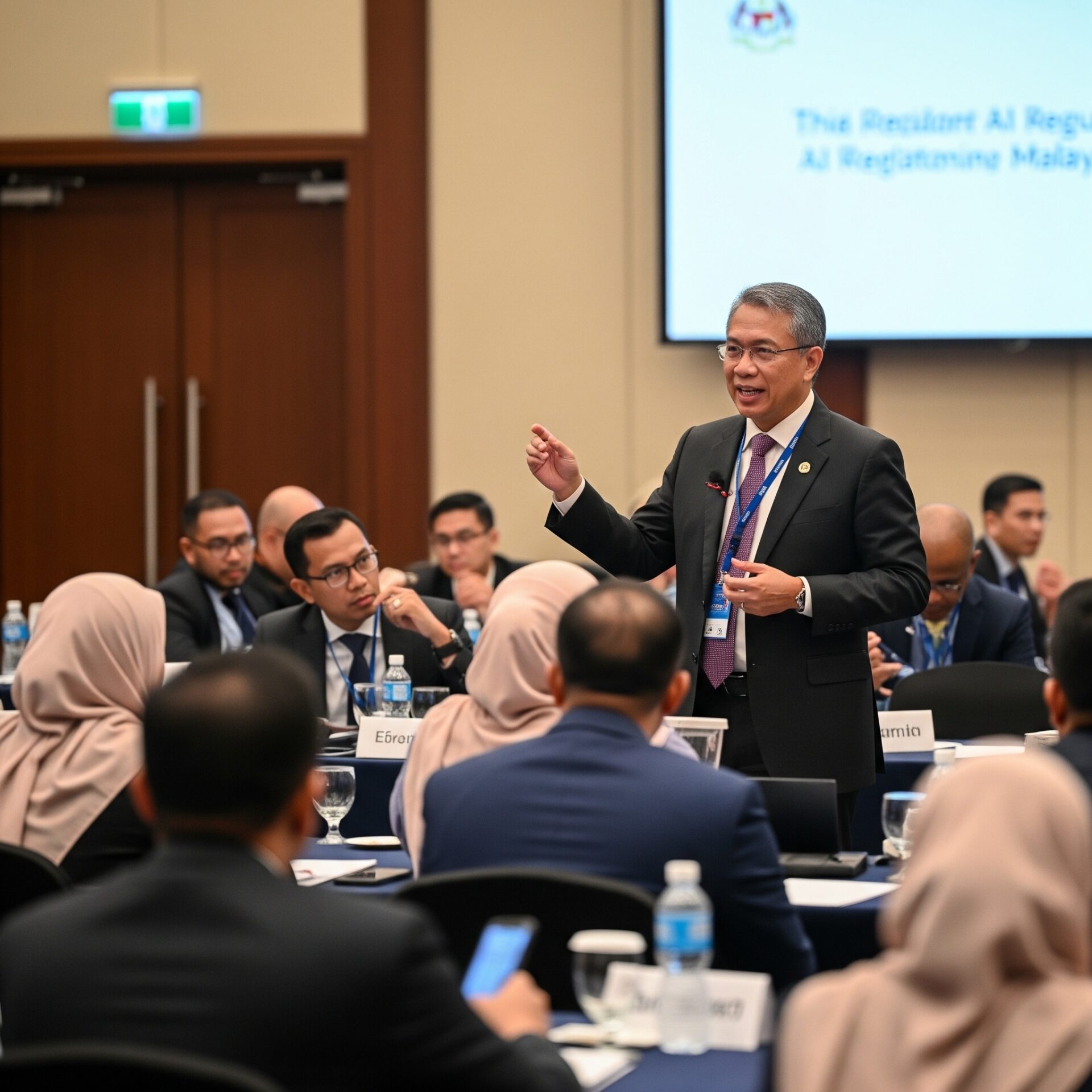The Malaysian government is actively pursuing the establishment of a robust legal framework for artificial intelligence (AI) as the technology’s growing impact across various sectors presents new challenges and opportunities.
Government Preparations for AI Regulation
The Ministry of Digital is currently preparing a comprehensive report on AI-related legal requirements, which will be submitted to the Dewan Rakyat (House of Representatives) for further deliberation.
Minister of Digital Gobind Singh Deo revealed that the National AI Office (NAIO) has been tasked with conducting a detailed study on AI, with results expected to be delivered to the ministry soon. This study will form the foundation for the government’s approach to AI regulation and will be presented to the Cabinet for decisions on next steps.
“AI is an area that cuts across all sectors,” Minister Gobind explained. “Some sectors may require specific legal provisions due to the higher risks involved and the need for structures that enable clear actions to ensure effective implementation. Meanwhile, other areas related to AI may not necessarily require legislation but can be managed through the formulation of standards or guidelines.”
Scale of AI Misuse Damages
Deputy Digital Minister Datuk Wilson Ugak Kumbong emphasized the urgency of expediting specific legislation to govern AI due to the growing negative impact of its misuse, particularly in fraud-related activities.
Datuk Wilson highlighted that from 2020 to 2024, AI-related crimes worldwide have resulted in losses estimated at around RM5 billion. “I expect the AI legislation to be tabled this year so that we can tighten control measures and outline appropriate penalties for those who misuse this technology,” he stated.
Deepfake Videos and Response Measures
The government is addressing AI misuse incidents, including deepfake videos of high-ranking government officials. Viral videos circulated on social media falsely showed officials allegedly receiving aid, which they have firmly denied and condemned publicly as misinformation.
To combat these challenges, the Ministry of Digital has been actively conducting public awareness campaigns, especially targeting rural communities, through the Digital Malaysia Tour programme. These campaigns aim to educate the public about the latest tactics and methods used by criminals exploiting AI technology for fraudulent purposes.
“I have personally visited locations such as Sabah, the interior of Kapit in Sarawak and Penang to raise awareness among rural populations about the evolving methods criminals use,” said Datuk Wilson.
Balanced Regulatory Approach
Malaysia’s approach to AI regulation appears to be multifaceted. It recognizes that certain sectors with higher risks may need stringent legal controls, while others could be managed through standards, guidelines and awareness programmes. This balanced strategy aims to foster innovation while protecting citizens and institutions from harm.
As the Ministry of Digital moves closer to finalizing its report, the government’s efforts underscore a commitment to ensuring that Malaysia’s AI ecosystem develops responsibly. The anticipated legislation and regulatory framework are expected to strengthen oversight, provide clear guidelines for AI usage and introduce penalties for misuse.
This move aligns with global trends where governments are increasingly focused on developing comprehensive AI governance frameworks. Malaysia’s proactive steps highlight its intent to be at the forefront of responsible AI adoption in the region.

